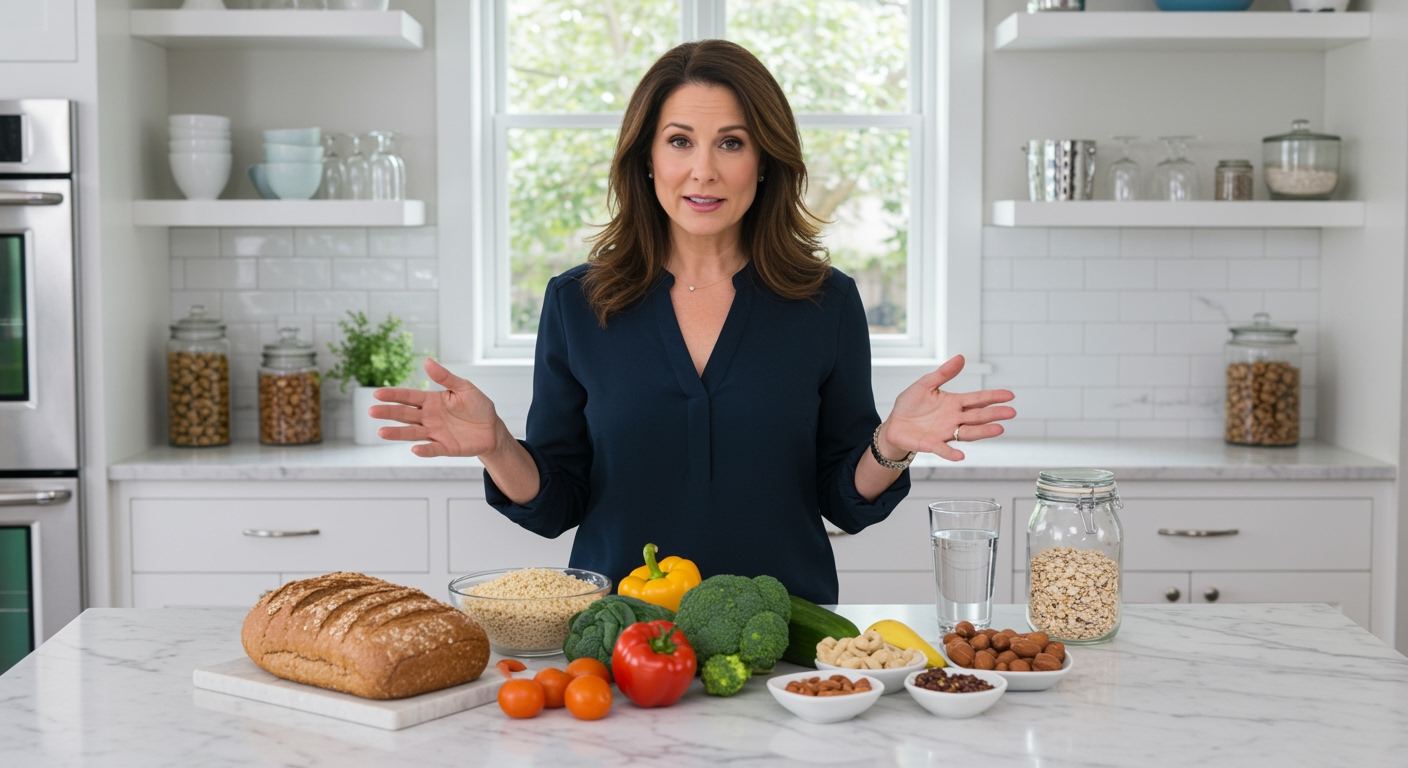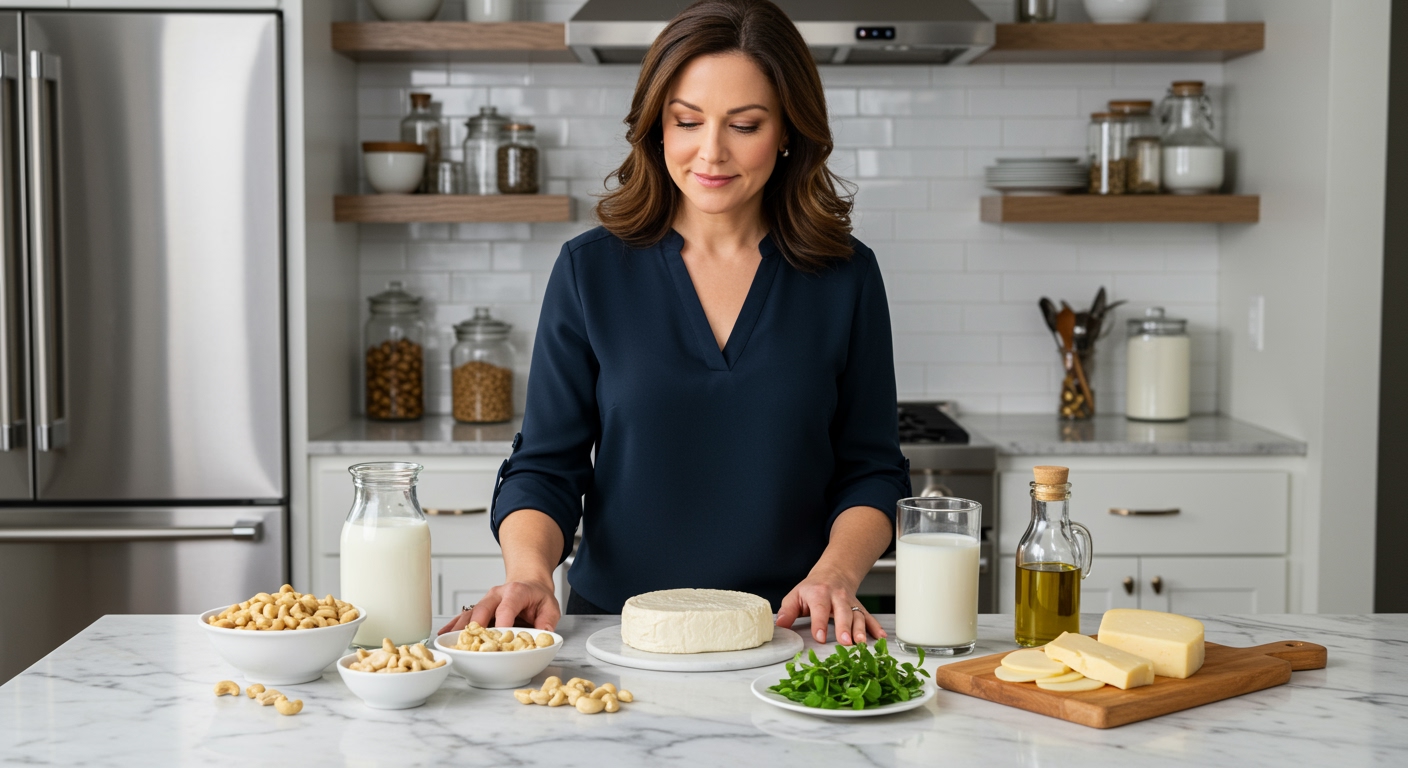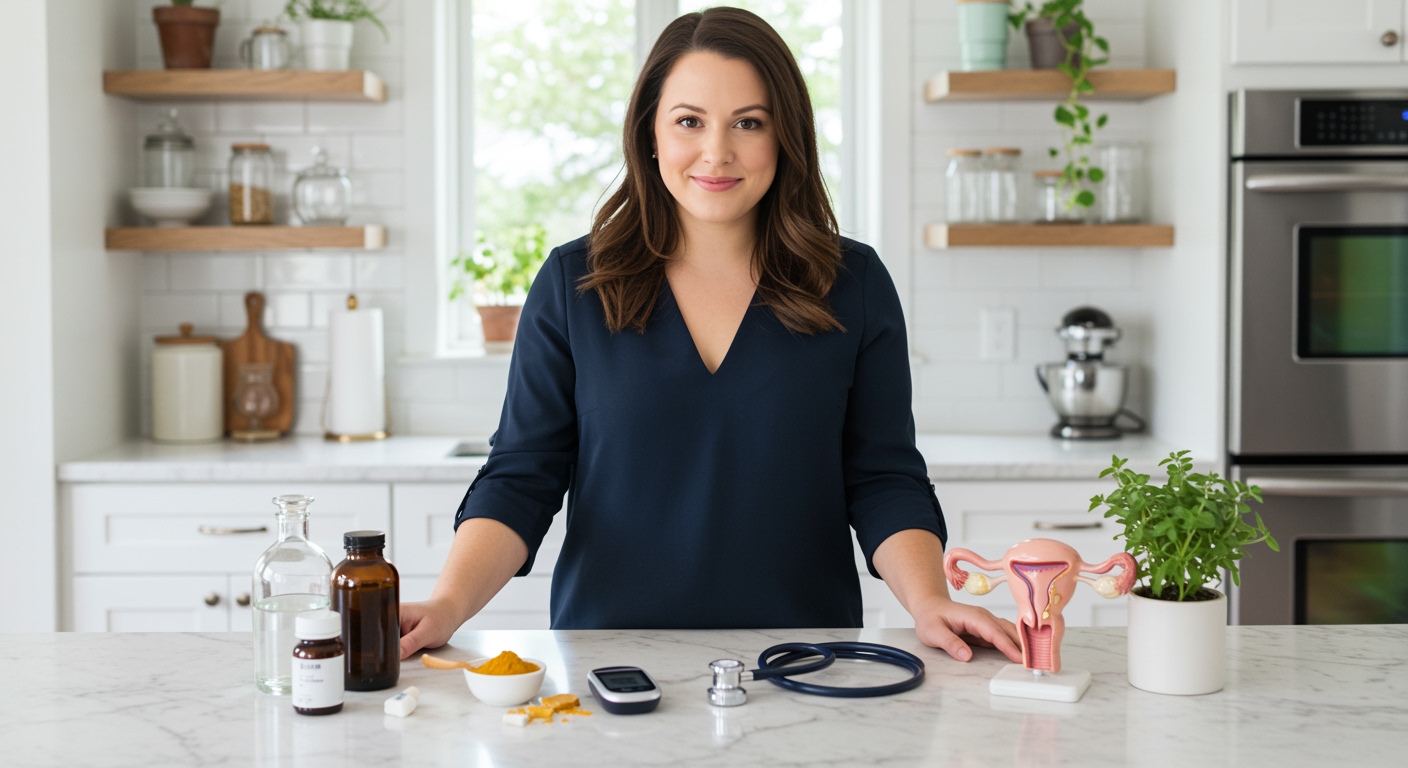✪ Key Takeaway: A gluten-free diet is not necessary for most women with PCOS unless they have confirmed celiac disease or gluten sensitivity.
Introduction
You scroll through social media and see another PCOS success story claiming gluten-free eating changed everything.
You wonder if eliminating gluten might be the missing piece in your own PCOS management puzzle.
Hi, I’m Abdur, your nutrition coach and today I’m going to explain whether a gluten-free diet is truly necessary for managing PCOS symptoms.
What Does Science Say About Gluten and PCOS?
Current research shows no direct connection between gluten consumption and PCOS development or progression.
Studies examining gluten-free diets in PCOS women have produced mixed results with no clear evidence of superior benefits.
The inflammation theory suggesting gluten worsens PCOS symptoms lacks solid scientific backing in most cases.
Most improvements seen with gluten-free diets likely result from overall dietary changes rather than gluten elimination specifically.
Women often reduce processed foods, refined carbohydrates, and added sugars when going gluten-free, which naturally improves insulin sensitivity.
✪ Fact: Only 1% of the population has celiac disease, making gluten truly problematic for very few people.
Who Actually Needs to Avoid Gluten with PCOS?
Women with confirmed celiac disease must avoid gluten completely regardless of their PCOS status.
Those with non-celiac gluten sensitivity may experience digestive improvements by eliminating gluten-containing foods.
Some women notice reduced bloating and inflammation when they remove gluten, but this often correlates with removing processed foods.
If you experience consistent digestive issues, headaches, or fatigue after eating gluten-containing foods, medical testing can determine sensitivity.
The majority of women with PCOS can safely include whole grain gluten-containing foods as part of a balanced diet.
✪ Pro Tip: Get proper medical testing before eliminating entire food groups from your diet.
What Are the Risks of Going Gluten-Free Unnecessarily?
Gluten-free processed foods often contain more sugar, sodium, and unhealthy fats than their regular counterparts.
Many gluten-free products lack essential nutrients like B vitamins, iron, and fiber found in fortified wheat products.
The restrictive nature of gluten-free eating can lead to social isolation and increased stress around food choices.
Gluten-free specialty products typically cost significantly more than regular alternatives, creating financial strain.
Eliminating gluten without medical necessity may create unnecessary food fears and complicate your relationship with eating.
Some people develop digestive sensitivity to gluten after avoiding it long-term, even if they previously tolerated it well.
✪ Note: Restrictive diets can trigger disordered eating patterns in susceptible individuals.
What Should You Focus on Instead for PCOS?
Prioritize balanced meals that combine lean protein, healthy fats, and complex carbohydrates to stabilize blood sugar.
Choose whole grain options like quinoa, brown rice, oats, and yes, even whole wheat when tolerated.
Focus on anti-inflammatory foods such as fatty fish, leafy greens, berries, and nuts to support hormone balance.
Limit processed foods, added sugars, and refined carbohydrates regardless of their gluten content.
Maintain consistent meal timing and portion sizes to support insulin sensitivity and metabolic health.
Include regular physical activity and stress management techniques as these impact PCOS symptoms more significantly than gluten elimination.
✪ Pro Tip: A sustainable, balanced approach works better than restrictive elimination diets for long-term PCOS management.
The Bottom Line
A gluten-free diet is not necessary for most women with PCOS and may actually create more problems than solutions.
Health is about addition, not subtraction – focus on adding nutrient-dense foods rather than eliminating entire food groups without medical reason.
I would love to hear about your experience with different dietary approaches for PCOS management, so please share your thoughts and questions in the comments below.
References
At NutritionCrown, we use quality and credible sources to ensure our content is accurate and trustworthy. Below are the sources referenced in creating this article:
- Root Functional Medicine: Gluten and PCOS
- Claire Pettitt: Do I Need to Go Gluten Free for PCOS
- Aspect Health: Gluten and PCOS How Do They Get Along Together
- NCBI: Gluten-Free Diet and PCOS Research





